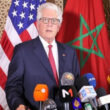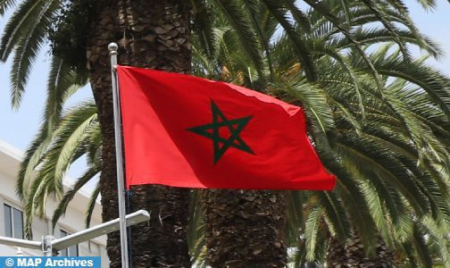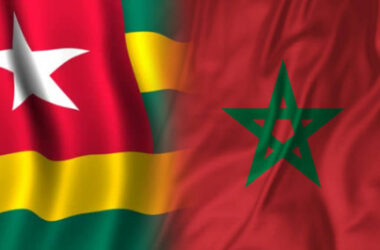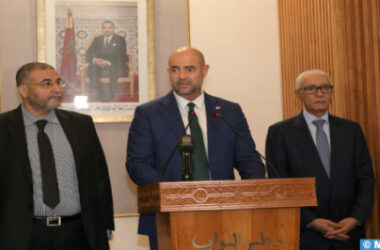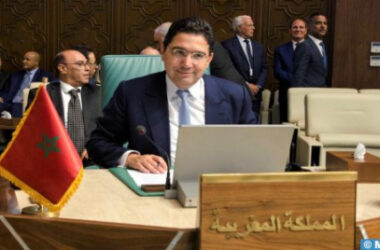Speaking at the UN High-level Conference of Heads of Counter-Terrorism Agencies of Member States held within the framework of the Third Counter-Terrorism Week (June, 19-23), Chekkori underlined that Morocco has always been a “staunch advocate” of strengthening institutional cooperation against terrorism.
In collaboration with the United Nations Office of Counter-Terrorism (UNOCT) organizer of the meeting, Morocco launched the “Marrakesh Platform for African Heads of Security and Counter-terrorism Agencies” last year, he recalled, noting that the platform, which recently convened for its second meeting in Tangiers, brought together over 38 heads of security agencies from African member States and partner countries. “It serves as an annual forum to assess achievements, priorities, needs, and actions, while promoting inter-agency coordination and the exchange of best practices and experiences”.
He stated that the Marrakesh Platform stands as a “strong demonstration” of African countries’ willingness to engage in a reliable and credible multilateral effort to counter terrorism and serves as a successful model of regional institutional coordination that deserves support and promotion.
The platform reflects three key attributes of a successful counter-terrorism approach in Africa: It promotes African ownership of customized counter-terrorism responses and tailored solutions. It facilitates the exchange of successful African experiences and lessons learned. It aligns with the priorities of emerging counter-terrorism initiatives and endeavors such as the “African Atlantic States Initiative,” “Accra Initiative,” and “Africa Focus Group”, he said.
Chekkori pointed out that Morocco is also hosting in Rabat the UNOCT Program Office for Counter Terrorism Training in Africa, which represents the culmination of the partnership and fruitful collaboration between the Kingdom and the UN, adding that the office offers capacity building programs that respond to the priorities of African countries. “These programs, closely coordinated with Moroccan security authorities, leverage Morocco’s counter-terrorism experience, and share best practices with beneficiary countries and they align with the guidelines of His Majesty King Mohammed VI, emphasizing collaboration and sharing Morocco’s national multidimensional strategy”.
The speaker further specified that the implementation of this strategy hinged upon a series of measures for strengthening institutional resilience within security, socio-economic and religious fields, stating that this approach pertains mainly to developing institutional framework by enacting robust counter-terrorism laws and establishing specialized bodies for implementing national counter terrorism measures. It involves strengthening the institutional framework by enacting robust counter-terrorism laws and establishing specialized bodies, such as the Central Bureau of Judicial Investigation, (BCIJ), Chekkori said.
Sharing some points about BCIJ, as an example of effective Moroccan institutional response to terrorism, he indicated that the BCIJ is a specialized security agency in Morocco operating under the General Directorate of Territory Surveillance. It is responsible for investigating and prosecuting terrorism-related cases in Morocco, with jurisdiction over all acts of terrorism within the country’s borders and operates nationwide, conducting independent or collaborative investigations with national and international security agencies, he told the High-level Conference.
The BCIJ acts as the judiciary branch of the General Directorate of Territory Surveillance and before engaging any operational measure, it coordinates with the General Attorney of the Rabat Court, who has the exclusive capacity in dealing with terrorism cases, he underlined, noting that this organ, which boasts highly trained investigators, intelligence analysts, and forensic experts, gathers intelligence, conducts investigations, collects evidence, and builds cases against individuals and groups involved in terrorism.
“Beyond its investigative role, the BCIJ engages in preventive measures to counter radicalization and monitors online activities and social media platforms to detect extremist propaganda and recruitment efforts and works closely with local communities, religious leaders, and civil society organizations to raise awareness, provide education, and discourage radicalization”, he noted, adding that the BCIJ maintains strong ties with international partners, collaborating with foreign security agencies to share information, coordinate efforts, and conduct joint operations against transnational terrorist networks. In the same vein, Chekkori pointed out that the BCIJ has proved to be a successful example of Morocco’s capacity to withstand and effectively respond to terrorist threats.
There are four key elements that can be drawn from BCIJ experience, the speaker said, citing preparedness which includes having robust plans, procedures, and resources in place to address various types of threats; intelligence and information sharing; coordination and cooperation and adoption of adaptive and flexible approaches that adjust the strategies and tactics in response to evolving terrorist threats, by constantly evaluating procedures, technologies, and policies to stay ahead of emerging risks and challenges.
In this respect, Chekkori said that Morocco’s national security agencies remain open to collaboration and cooperation with reliable partners to achieve tangible efforts that yield concrete results.
He also reaffirmed Morocco’s commitment and unwavering engagement toward the security and stability of the African continent.




